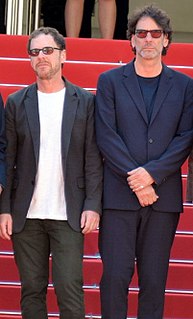A Quote by Joshuah Bearman
Often my characters have some kind of idealism or grand belief that they're pursuing.
Related Quotes
They have their belief, these poor Tibet people, that Providence sends down always an Incarnation of Himself into every generation. At bottom some belief in a kind of Pope! At bottom still better, a belief that there is a Greatest Man; that he is discoverable; that, once discovered, we ought to treat him with an obedience which knows no bounds. This is the truth of Grand Lamaism; the "discoverability" is the only error here.
One of my favorite scenes in Fellini is the ecclesiastical fashion show in Roma, and the end of 8 ½, when all the characters in the life of Guido, Marcello Mastroianni, get together and do this grand procession. That was on my mind, especially at the 45th anniversary, when all those characters in Valentino's life returned to Rome. I kept watching that and saying, if only we can arrange that grand procession at the end...and it kind of happened.
Youth is a period of idealism. The Communists attract young people by appealing directly to that idealism. Too often, others have failed either to appeal to it or to use it and they are the losers as a consequence. We have no cause to complain if, having neglected the idealism of youth, we see others come along, take it, and harness it to their cause - and against our own.
Some people see me as dissecting my characters in some kind of heartless, coldblooded, analytical way, when in truth making these movies is a passionate, intensely emotional experience for me. I'm detached from the characters only to the degree that I have to be in order to write honestly about them.
Talk of belief in these animals is not some kind of anthropomorphism. We simply cannot explain the kinds of problem solving and behavioral sophistication some species exhibit without supposing that they have genuine beliefs. But once these ethologists finish making the case for animal belief, they quickly move to talk of animal knowledge as well. What I argue is that this is not a mere façon de parler.
Katie Grand often comes in from a very different angle than what I've been thinking about. And that really gives it that extra something, because designers can often get stuck in their own view of how the collection can look. I always love the way that she turns it into something else and I kind of let go at that point.




































